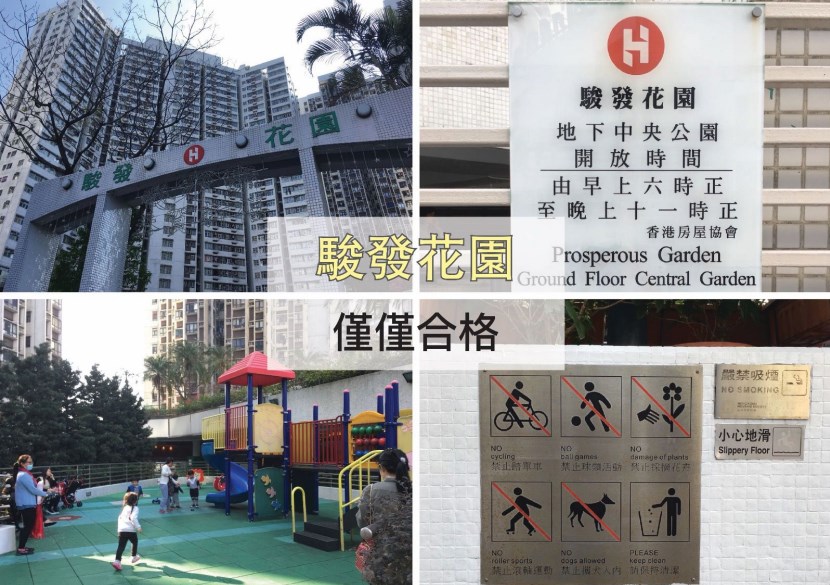A public space advocacy organisation has found that eight of 11 privately owned public spaces fail to meet the mark in its latest audit.
“Privately owned public space” refers to venues that are open to the public but provided and managed by private interests. The mismanagement of such spaces has long been a concern, with the University of Hong Kong releasing a study in 2008 detailing problems such as a failure to display notices indicating their public status as required, or their partial occupation by restaurants.

The Hong Kong Public Space Initiative conducted an audit of 11 such spaces in Hong Kong and assessed the sites based on accessibility, environment and facilities, public use and sociability.
See also: How Hong Kong’s developers are abusing public space
In a report published Thursday, the group found that the only housing estates that passed the audit were Royal Ascot in Sha Tin, Island Crest in Sai Ying Pun, and Prosperous Garden in Yau Ma Tei. Many of the sites were hidden podiums or did not encourage the public to enter, it said.
Prosperous Garden, which was designed almost 30 years ago, received the highest score in the audit report. The group said that the garden was the most open to public and had a high usage rate.
Meanwhile, the public space at Metro Harbour View – which came under fire for restricting access to the public a decade ago and was slammed by Designing Hong Kong as offering “no benefit for the surrounding community” – as it still lacked clear directions, with the site only accessible after climbing a number of stairs.

The audit also discovered that the public space site in Tsuen Wan’s Belvedere Garden was labelled as a private space, while a barrier-free site at North Point’s City Garden was found to have stairs.
“Therefore, even though the government formulated the ‘Public Open Space in Private Developments Design and Management Guidelines’ in 2011, the guidelines are not legally binding and have no effect on privately owned public spaces that have already been built,” the group said.
“All of these privately owned public spaces actually make up a big area when put together, but they have low usage and a lot of precious spaces that belong to Hongkongers are put to waste,” it added.
